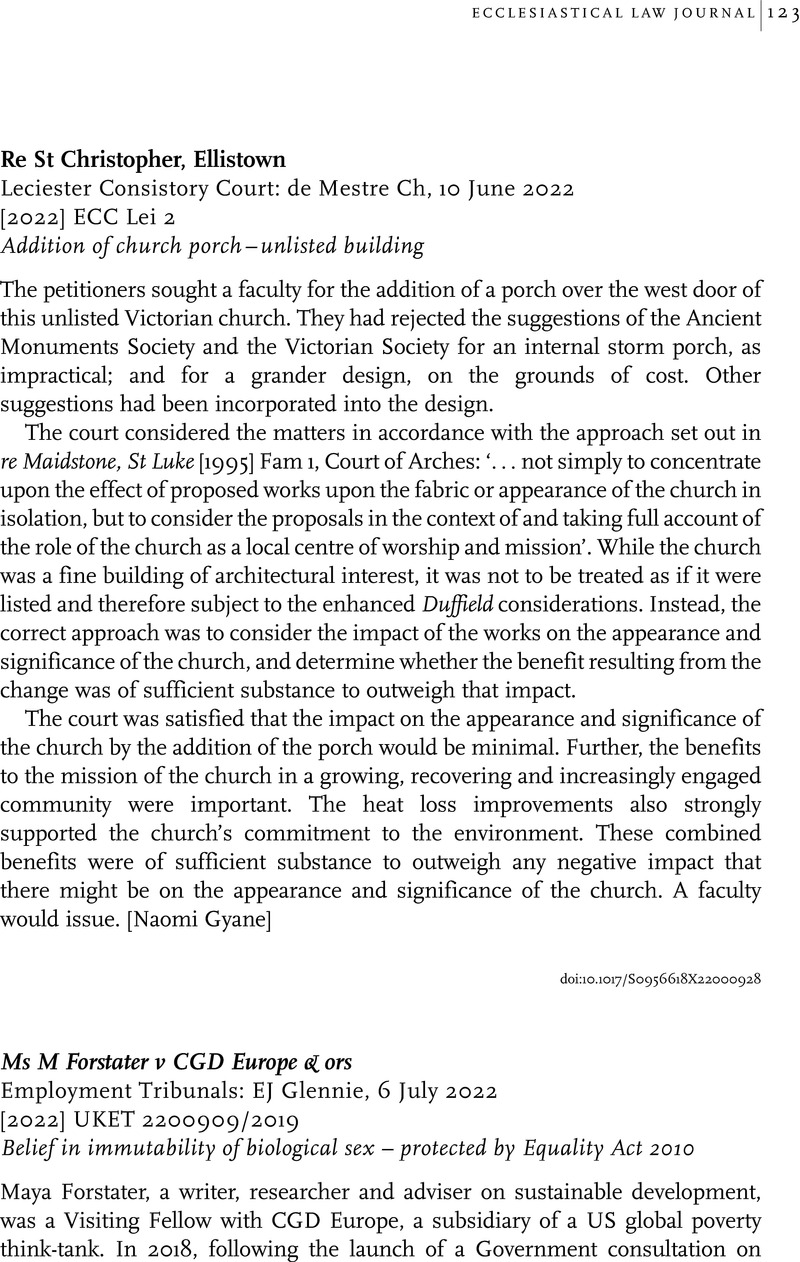No CrossRef data available.
Article contents
Ms M Forstater v CGD Europe & ors
Employment Tribunals: EJ Glennie, 6 July 2022 [2022] UKET 2200909/2019 Belief in immutability of biological sex – protected by Equality Act 2010
Published online by Cambridge University Press: 05 January 2023
Abstract
An abstract is not available for this content so a preview has been provided. Please use the Get access link above for information on how to access this content.

- Type
- Case Notes
- Information
- Copyright
- Copyright © Ecclesiastical Law Society 2023



